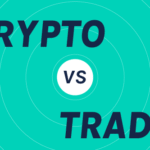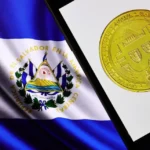El Salvador, Bitcoin & Beyond: A Look at National Crypto Adoption

Introduction
In 2021, El Salvador made global headlines by becoming the first country to adopt Bitcoin as legal tender. This bold move marked a historic milestone in the evolution of cryptocurrency and sparked a wave of debate across governments, financial institutions, and the crypto community. Since then, El Salvador’s experiment with Bitcoin has become a case study in national-level crypto adoption—its challenges, potential, and global impact.
The Bitcoin Law: What It Entails
El Salvador’s “Bitcoin Law,” passed in June 2021 and enacted in September of that year, made Bitcoin legal tender alongside the U.S. dollar. This meant businesses were legally required to accept Bitcoin as a form of payment, and citizens could pay taxes using the digital currency. The government also launched a digital wallet called Chivo, offering financial incentives for its adoption, and installed Bitcoin ATMs nationwide.
Objectives Behind the Move
President Nayib Bukele’s administration justified the move with several goals: promoting financial inclusion, reducing remittance costs, attracting crypto investors, and modernizing the country’s economy. With over 70% of the population unbanked at the time, Bitcoin was presented as a tool to bridge the financial gap and offer access to digital payments in remote areas.
Impact on Financial Inclusion and Remittances
While initial adoption of the Chivo wallet surged due to government incentives, sustained usage has been mixed. However, Bitcoin has shown potential to lower remittance fees—a critical factor, considering remittances make up over 20% of El Salvador’s GDP. By using Bitcoin and blockchain rails instead of traditional financial intermediaries, cross-border payments can become faster and cheaper for everyday Salvadorans.
Challenges and Criticism
Despite its groundbreaking approach, El Salvador has faced criticism from international financial institutions like the IMF and World Bank. Concerns center around Bitcoin’s price volatility, macroeconomic risks, lack of financial education, and potential for money laundering. Additionally, a significant portion of the population remains skeptical, with many opting to continue using cash or the U.S. dollar.
Bitcoin Bonds and the “Bitcoin City” Vision
To further cement its crypto-forward strategy, El Salvador announced plans to issue “Bitcoin Bonds”—$1 billion worth of tokenized bonds on the Liquid Network to fund infrastructure and Bitcoin mining projects. Part of this vision includes the creation of Bitcoin City, a tax-free crypto hub powered by geothermal energy from nearby volcanoes, aiming to attract global tech entrepreneurs and investors.
Global Reactions and Ripple Effects
El Salvador’s crypto strategy has not gone unnoticed. Other countries, especially those with high remittance dependence or inflationary pressures, are closely watching its progress. While no other country has yet followed suit in adopting Bitcoin as legal tender, several have introduced regulatory frameworks to accommodate digital assets and explore central bank digital currencies (CBDCs).
Looking Ahead: Sustainability and Long-Term Viability
El Salvador’s success in crypto adoption will depend on multiple factors: global market conditions, Bitcoin’s long-term performance, education and literacy among citizens, and the country’s ability to integrate blockchain into broader economic infrastructure. If successful, it could serve as a blueprint for other developing nations. If not, it may be remembered as a cautionary tale of premature innovation.
Conclusion: A Bold Gamble with Global Implications
El Salvador’s embrace of Bitcoin is one of the most ambitious experiments in the intersection of national policy and cryptocurrency. While still in its early stages, it offers valuable lessons on the potential—and the pitfalls—of national crypto adoption. As the world watches, one thing is clear: the outcome of El Salvador’s Bitcoin experiment will shape the future of global crypto discourse.









